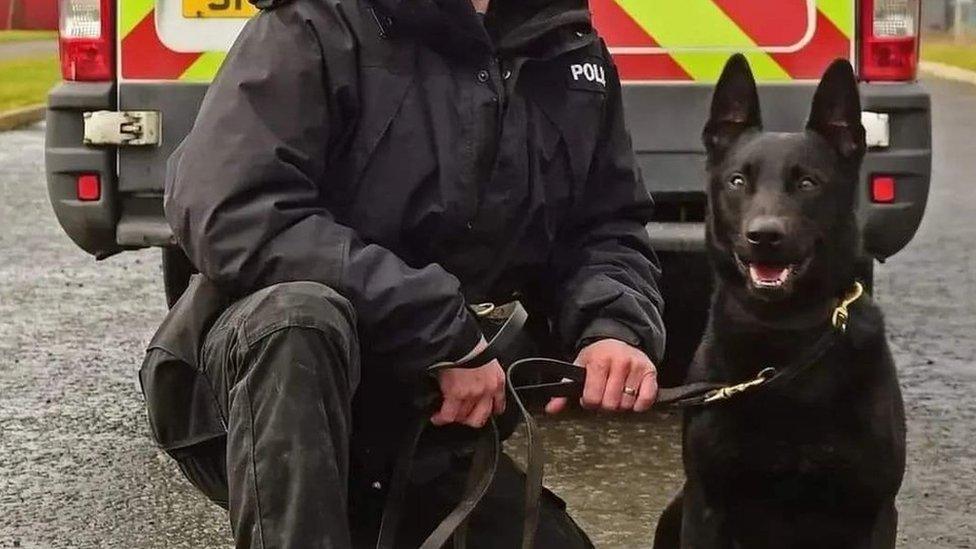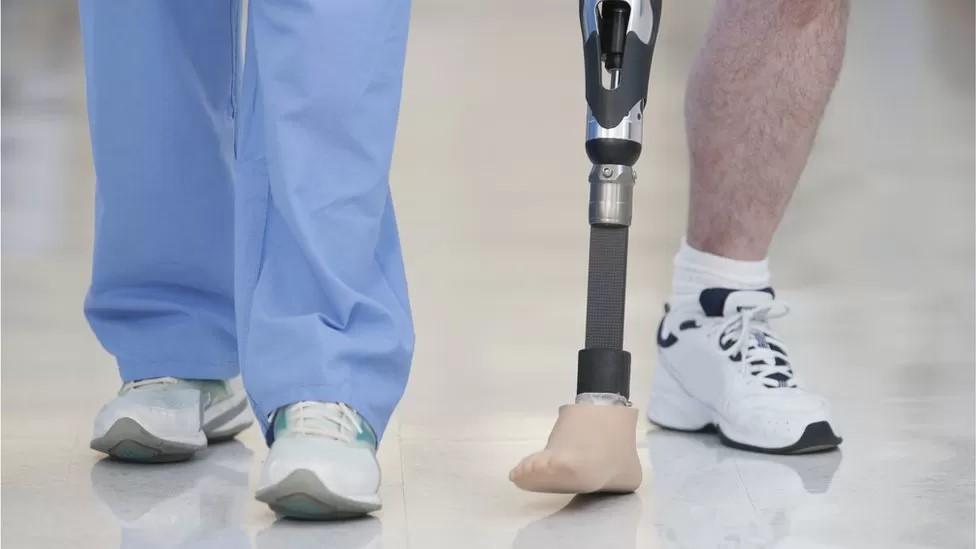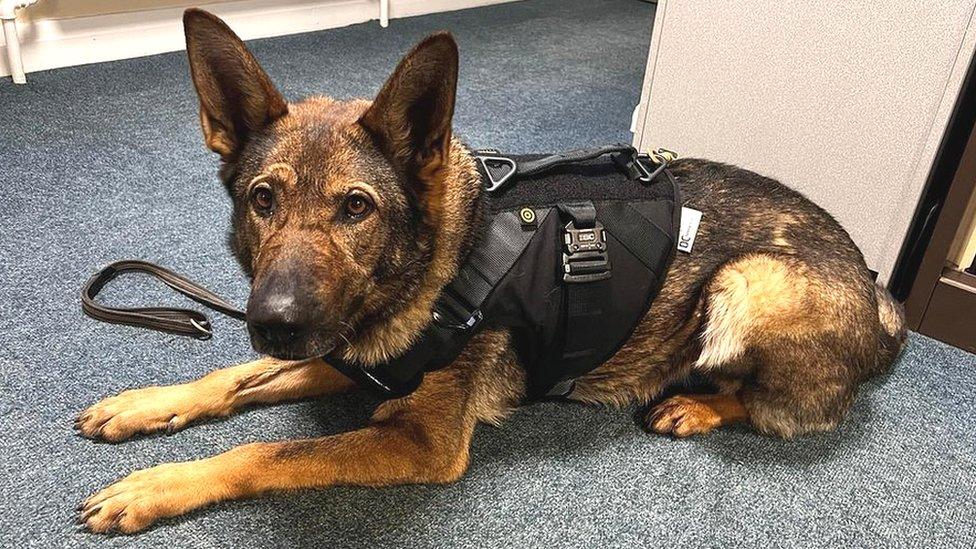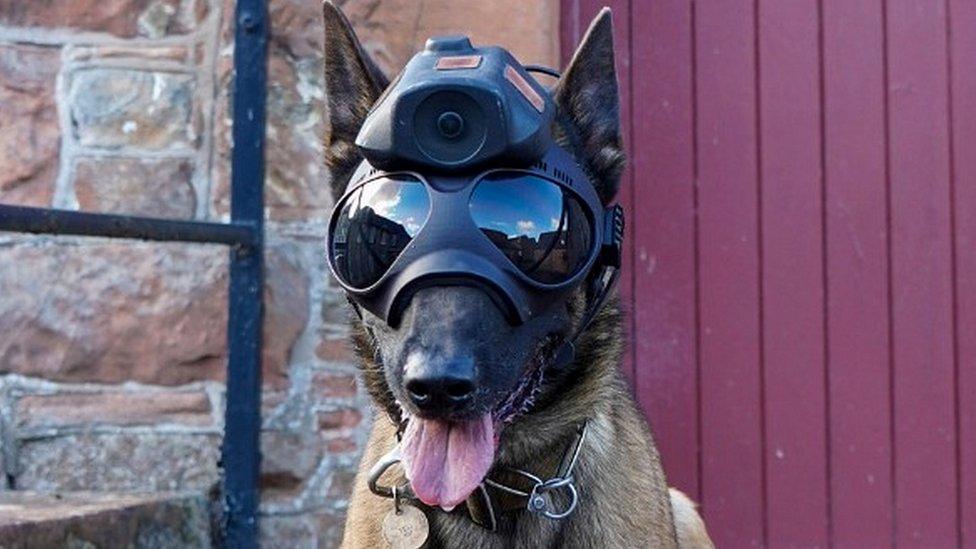Amputated legs could be used in police dog training
- Published

Dogs are typically trained to find bodies using pig flesh
Amputated human legs could be used in experiments to see if they could help police dogs find bodies.
If plans are approved, trials are due to take place next month at Porton Down, in Salisbury, Wiltshire, in a UK-first.
The dogs are typically trained to search for bodies of missing people using pig flesh.
But, without training using human tissue, there could be a risk dogs may miss victims who could have been found.
It is understood the Home Office-commissioned project is set to take place at the high security research site involving several teams of police dogs.
The dogs would be offered a mix of decomposed animal and human scent samples to test whether they can identify the difference.

Scientific trials are due to take place next month
Lower limbs removed in surgery and donated by consenting, living patients with conditions like diabetes are expected to be used, according to government sources.
Approval from the Health Research Authority (HRA) is legally required for the research before it can start.
"The application is currently being reviewed by the body with an update expected in the coming days," a HRA spokeswoman said.
"The HRA has been told the project has been reviewed by the Ministry of Defence's research ethics committee," she added.
It comes as the National Police Chiefs' Council (NPCC) is reviewing dog training practices.
If successful, the trial could lead to changes in government policy on police dog training.
The NPCC said it would not comment on the project.
A Home Office spokesperson said: "We have commissioned a pilot to understand whether the training of victim detection dogs can be enhanced.
"Studies of this nature are vital to evolve our capabilities to protect the public and bring offenders to justice."
The Human Tissue Authority has been contacted for comment.

Follow BBC West on Facebook, external, Twitter, external and Instagram, external. Send your story ideas to: bristol@bbc.co.uk , external
- Published27 August 2023

- Published20 June 2023

- Published19 October 2022
